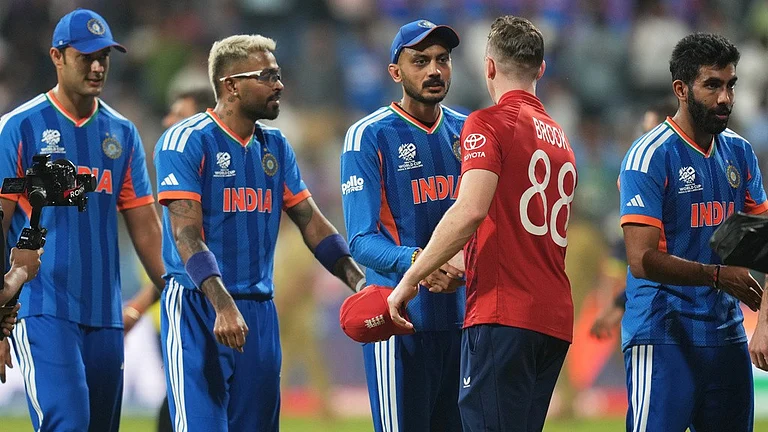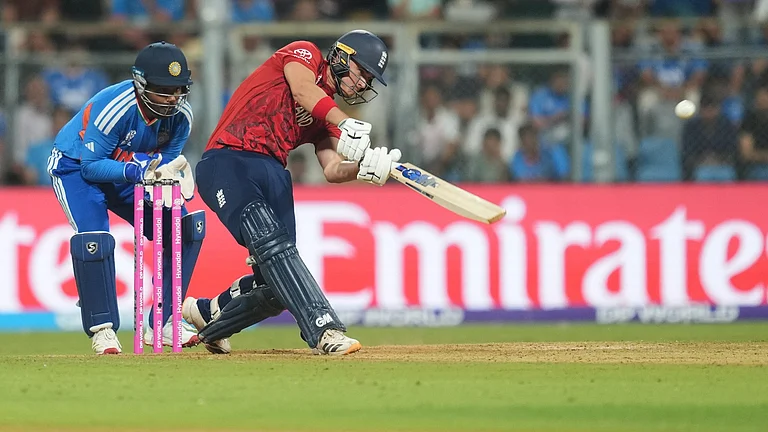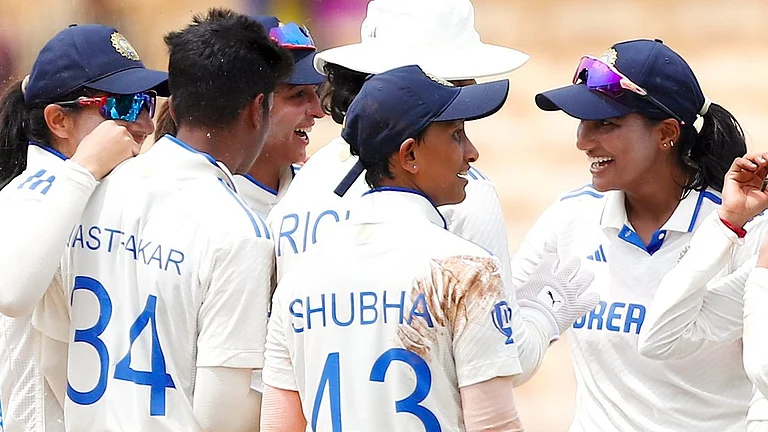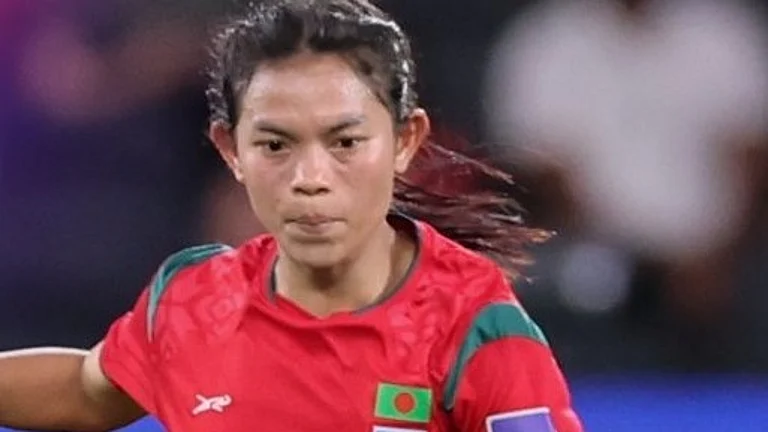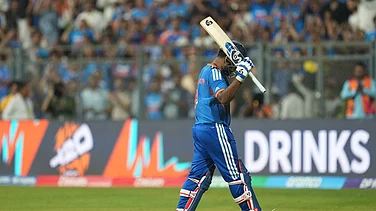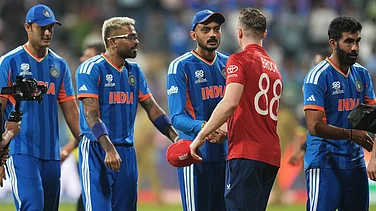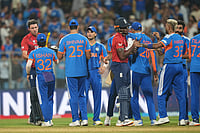Back in 1939, the story goes, a member of the MCC at Lord’s saw a worker removing the bust of cricketer W.G. Grace on display there, to put it in safe storage. Turning to a colleague he said, “Good Lord! This means war.”
In March 2020, when the Tokyo Olympics were cancelled, we said in effect, “Good Lord! This means the end of normality.”
But as a race, we are nothing if not resilient. In 2021, the talk was about the “new normal”, and the place of sports in it. All sports had a common venue: TV. Some were played to full stadiums, some—where Covid protocols were observed—to partially-filled ones. Many to empty stadiums. There was something almost immoral about sports, the essence of our competitive and social selves, being held in empty stadiums. But at least they helped us pretend things were normal.
A pretence that was bolstered by fake crowds making fake noises mimicking a genuine crowd. At some football matches, the ‘crowd’ wore the colours of genuine clubs that the fake spectators supported. It was technology to the rescue. The more philosophical among us pondered a version of the classic question: if England beat Portugal to win a football match but there was no one present to see it, did it really happen?
Like many such conundrums, the answer was clear: it did not matter. It looked like a football match, it felt like a football match, the players were real, so why complicate issues?
The lexicon of the pandemic was, meanwhile, sliding into common usage: lockdown, bubble, social distancing. New rules were being put into use to make everything safer. Footballers wore gloves and were banned from hugging one another; in cricket, bowlers could not use their spit to polish the ball, equipment was disinfected regularly, awards had to be picked up by the winners from a table nearby. Miracle of miracles, the Olympics were held. A year late, but lacking in none of its competition or colour. Vaccines and bubbles had made it possible. Covid made us realise how vital sport is, how closely linked it is to our sanity and well-being. It was as if we were paraphrasing Browning: Kohli is at the crease, all’s right with the world. We believed—we wanted to believe.
ALSO READ: Song Sung Blue: The End As A New Beginning

Spectator-less sports A disinfected EPL match ball
But sport could not exist in a vacuum, however hard TV tried. As the second wave decimated India, the sight of a group of millionaires playing in the IPL raised serious doubts about our humanity. How many could watch IPL without revulsion and guilt, as countrymen contracted Covid-19 in millions and many died horrific deaths for lack of medical care? It couldn’t last, and it didn’t as the authorities came to their senses. Distraction in difficult times is important, but it can’t override civilised behaviour.
Sport was important—both when played and when not. Do we remember who the 2009 Wimbledon champion was? Maybe not. But we appreciate how necessary that tournament was at that time of the year in that place at that venue. It was a sign of normality. This is what sport is: an assurance of normality. It is a meaningless exercise that is the most significant thing we can do.
Also, we can trust sport. We looked suspiciously at economic figures and the Covid statistics through many months. One, we felt, was exaggerated, while the other was understated. But when Rishabh Pant made 101 in a Test match, we knew it as a fact. Not one run more, not one fewer. His public relations team didn’t tell us that he had made a double century while batting blindfolded. Sport was our statistical comfort.
As the concept of the ‘bubble’ was accepted and tours recommenced, it was amazing, this notion of sportsmen being able to give their best despite restrictions—physical, social, mental—in the bubble, for days and weeks together. Occasionally, the bubble was pricked as young and healthy men (it was usually men) forced into virtual hibernation at the peak of their physical powers, tried to shake off the imprisonment and breathe free air.
The wonder was not that some had done this, but that many hadn’t. Sitting in comfort at home, many of us found it easy (and necessary) to criticise such behaviour. But as even the comfortable began to feel uncomfortable the longer the pandemic lasted, they became less judgemental too.
For long, the initials MSD stood for Mahendra Singh Dhoni, India’s celebrated captain and wicketkeeper. Now it stands for ‘Mask, Soap, Distance’, the triple protection against Covid-19 that, vaccinated or not, we ought to persist with.
ALSO READ: The Four Horsemen Of Apocalypse
In the final race of the Formula One season, of the three men on the podium, only the second-placed Lewis Hamilton had a mask on. Champion Max Verstappen didn’t. A suggestion that MSD the player was popular, but MSD the call of the sane isn’t quite so.
(This appeared in the print edition as "Citius, Altius, Fortius, Abnormis")
(Views expressed are personal)
ALSO READ
Suresh Menon is an author most recently of why don’t you write something i might read?



